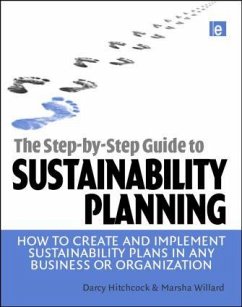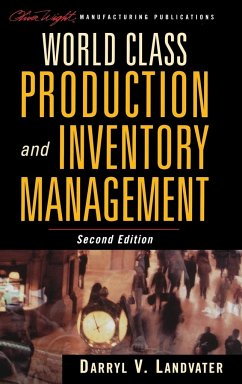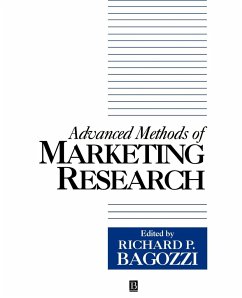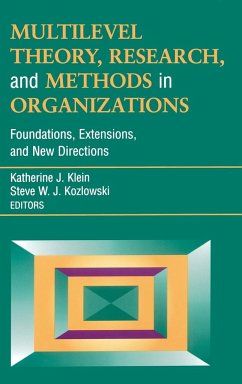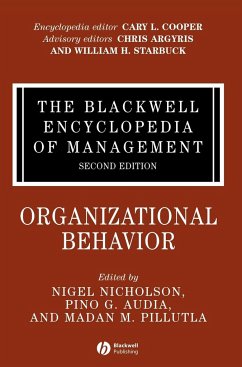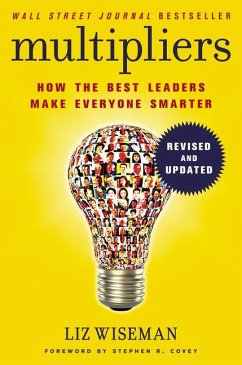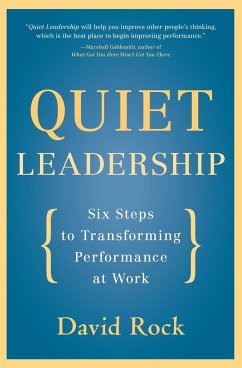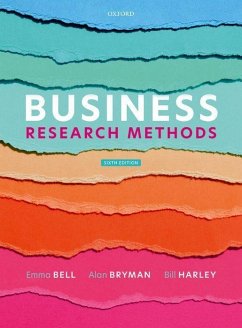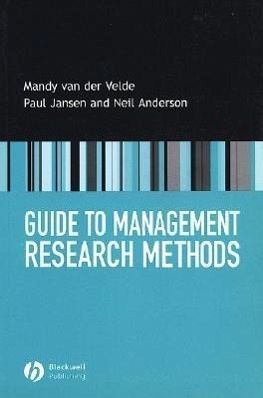
Guide to Management Research Methods
Versandkostenfrei!
Versandfertig in über 4 Wochen
40,99 €
inkl. MwSt.

PAYBACK Punkte
20 °P sammeln!
The Guide to Management Research Methods is an invaluable introductory textbook for all students of organizations. Organizational scientists must be able to conduct reliable research on the basis of empirical field data, and to argue the soundness or validity of their research approach, either as a researcher within a university or research institute, as an organizational consultant, or as a staff member in an organization. A career as an organizational scientist requires an important range of knowledge and skills. This popular textbook provides students at undergraduate and MBA levels with a ...
The Guide to Management Research Methods is an invaluable introductory textbook for all students of organizations. Organizational scientists must be able to conduct reliable research on the basis of empirical field data, and to argue the soundness or validity of their research approach, either as a researcher within a university or research institute, as an organizational consultant, or as a staff member in an organization. A career as an organizational scientist requires an important range of knowledge and skills. This popular textbook provides students at undergraduate and MBA levels with a thorough introduction to the research methods with which they need to be familiar and how to apply them. A popular course text, it teaches the skills that are essential for planning, conducting and reporting research projects, as well as evaluating the research of others. The authors offer a clear overview of the different steps in a research process: from the definition of a research problem to designing and conducting a study. Each chapter corresponds with a specific stage in the research project. Numerous examples and practical guidelines are provided throughout. Finally, attention is paid to the results of statistical data analyses and their inclusion in the report and presentation of the research project.




